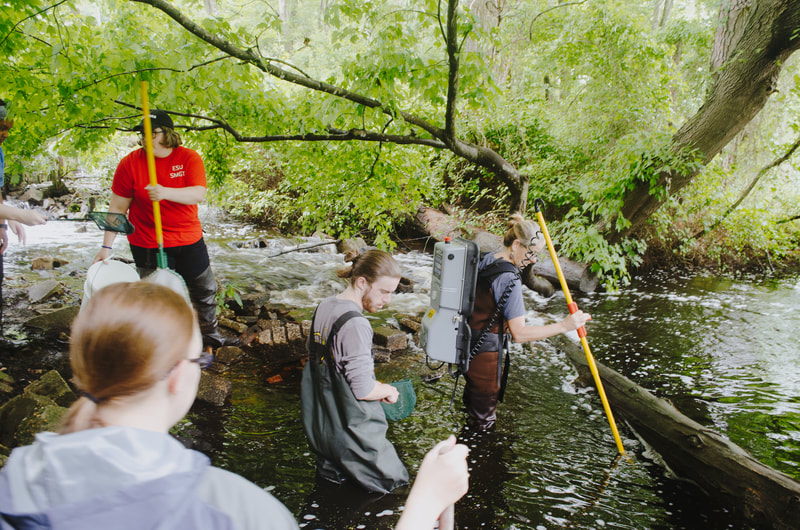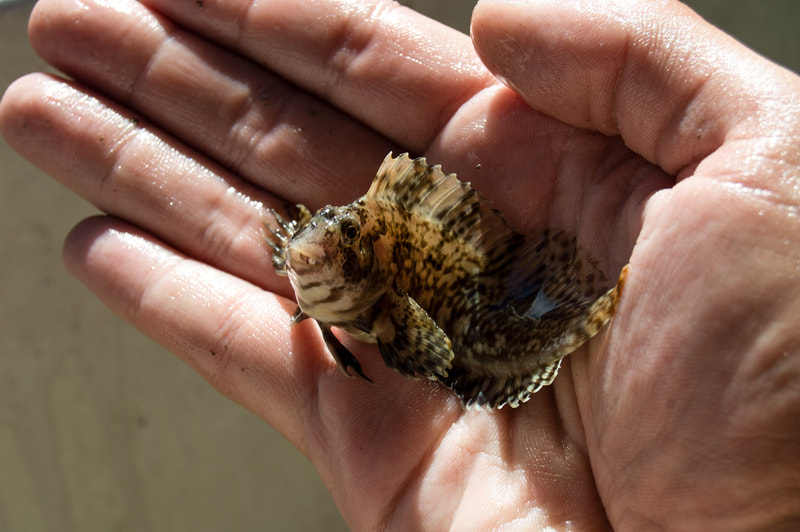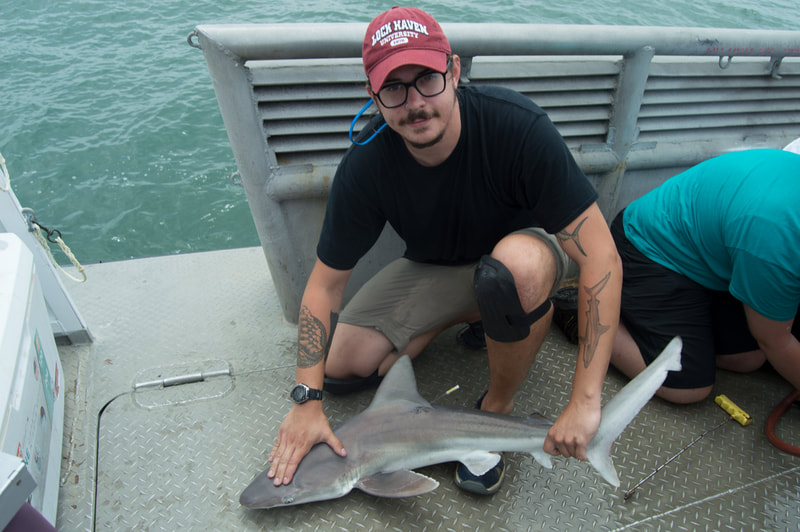MARINE ICHTHYOLOGY - BIOL 396
DR. DOMINIQUE DIDIER - MILLERSVILLE UNIVERSITY
This class is currently full but you may still sign up to be on the waitlist, when a spot opens an email will be sent to the next earliest who signed up!
Course Description:
Morphology, anatomy, physiology, systematics and behavior of fishes with an emphasis on marine fishes collected nearby estuaries and the ocean. Zoogeography, life histories and speciation also discussed.
Marketable Skills Gained from This Course:
At the Completion of the course the student shall be able to:
General Description of Field Activities:
In the field students will go to various mid-Atlantic habitats, including mashes, bays, beaches, and open water and will engage in trawling, trapping, seining, and hook and line methods for capturing live fish for study.
Prerequisites:
One year of college biology.
Approximate Amount of Course Time in the Field:
50%
Required Textbook or Supplies:
M. Barton, 2007. Bond’s Biology of Fishes 3rd edition, Thompson Brooks/Cole Publishers. ISBN 0120798751.
Out of print, used copies available online. Do not spend more than $100; I will have copes to borrow.
Recommended: Murdy, EO, JA Musick, and VA Kells. 2013. Fishes of Chesapeake Bay. Baltimore: Johns Hopkins University Press, 360 pgs. ISBN-13: 978-1421407685
• Available on Amazon.com I will have copies of the 1997 edition available to borrow.
Other text books and reference materials will be available in the laboratory.
Please bring your own dissection kit.
You will also need plain white t-shirt(s) for gyotaku (fish printing).
Number of Students:
14
2022 Chincoteague Bay Field Station Fee*:
3 week course; housing and meals included
Salicornia; $1,555
Traditional; $1,405
Fees are subject to change at the discretion of the board of directors
* Does not include university tuition or fees. For specific policy on CBFS fees, click HERE.
Alternate course may be available when this course fills up, if by popular demand.
Course Description:
Morphology, anatomy, physiology, systematics and behavior of fishes with an emphasis on marine fishes collected nearby estuaries and the ocean. Zoogeography, life histories and speciation also discussed.
Marketable Skills Gained from This Course:
- Use of trawl, seine, traps and hook and line to capture fish.
- Proper dissection techniques
- Morphometric techniques for identifying key features of fish species
- Use of dichotomous keys to identify species
- Techniques for the care of captive fish
At the Completion of the course the student shall be able to:
- Explain the evolution of major fish groups
- Recognize and name major families of fishes
- Identify mid-Atlantic coastal marine fishes by sight
- Use a dichotomous key to identify species of fish
- Describe the basic external and internal anatomy of fishes
- Describe key aspects of fish biology and behavior including swimming, schooling, sensory systems, and reproduction
- Utilize common methods of capture to collect fish
General Description of Field Activities:
In the field students will go to various mid-Atlantic habitats, including mashes, bays, beaches, and open water and will engage in trawling, trapping, seining, and hook and line methods for capturing live fish for study.
Prerequisites:
One year of college biology.
Approximate Amount of Course Time in the Field:
50%
Required Textbook or Supplies:
M. Barton, 2007. Bond’s Biology of Fishes 3rd edition, Thompson Brooks/Cole Publishers. ISBN 0120798751.
Out of print, used copies available online. Do not spend more than $100; I will have copes to borrow.
Recommended: Murdy, EO, JA Musick, and VA Kells. 2013. Fishes of Chesapeake Bay. Baltimore: Johns Hopkins University Press, 360 pgs. ISBN-13: 978-1421407685
• Available on Amazon.com I will have copies of the 1997 edition available to borrow.
Other text books and reference materials will be available in the laboratory.
Please bring your own dissection kit.
You will also need plain white t-shirt(s) for gyotaku (fish printing).
Number of Students:
14
2022 Chincoteague Bay Field Station Fee*:
3 week course; housing and meals included
Salicornia; $1,555
Traditional; $1,405
Fees are subject to change at the discretion of the board of directors
* Does not include university tuition or fees. For specific policy on CBFS fees, click HERE.
Alternate course may be available when this course fills up, if by popular demand.




